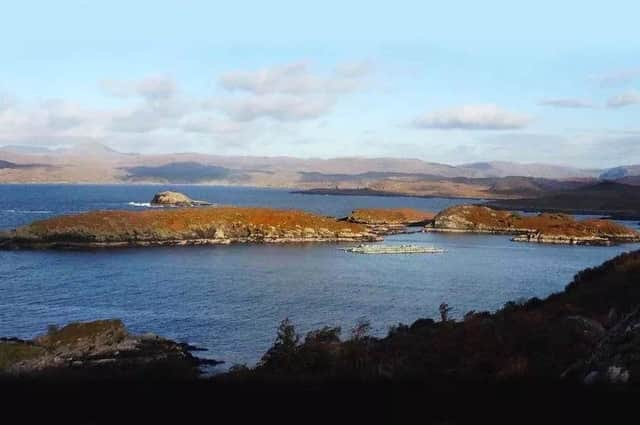“Malicious” claims over fish farm disease


A well-known anti-fish-farming campaigner posted on Tuesday of this week that a case of Infectious Salmon Anaemia had been detected following tests by Marine Scotland.
However, the company says the opposite is actually the case – they have been given a clean bill of health, and the tests in question date back several months.
Advertisement
Hide AdAdvertisement
Hide AdISA is a viral disease that can result in serious economic losses in the salmon farming industry.
Clinical signs in infected fish can include lethargy, swimming close to the water surface or the sides of cages, pale gills, swollen abdomen, and sometimes, internal and external haemorrhaging.
The disease is a concern for aquaculture operations because of its potential to cause high mortality rates and its impact on fish health and farm productivity.
The company in question, Loch Duart, are mainly based in the Sutherland area but have farming sites in the Outer Hebrides.
Advertisement
Hide AdAdvertisement
Hide AdAfter the online allegations emerged on Tuesday, a spokesperson for the company said: “Following investigation, Marine Scotland’s test results for the site came back negative for any notifiable disease.
“In line with Loch Duart’s commitment to transparency in reporting any potential environmental challenges, they contacted Marine Scotland last Autumn.”
The regulators issued a withdrawal notice, confirming the absence of infection, and the fish at the site are thriving, said the company.
“Any messages which insinuate that there has been a wider infection issue at this site are purely malicious and inflammatory,” added the spokesperson.
Advertisement
Hide AdAdvertisement
Hide AdIncidents of ISA were prevalent in the industry a number of years ago, but have reduced in recent times. In 2022, there were 15 confirmed outbreaks, down from 25 in 2021 and 23 in 2020. There were 11 confirmed outbreaks in 2023 spread over seven production areas, with areas in the south and west of the country particularly hard hit.
Tavish Scott, chief executive of the industry body Salmon Scotland said: “I am delighted that the Stornoway Gazette is calling out this disgraceful behaviour and I trust that other news outlets will be similarly balanced.
“The Scottish salmon sector is a global success story, but is subject to a constant stream of misinformation and outright lies from a tiny cohort of anti-salmon farming activists who want to ban salmon farming and make the 12,500 people reliant on our sector redundant.
"One of the most active campaigners has been described by court judges as ‘akin to a zealot’ and is now subject to a court order banning him from setting foot on dozens of salmon farms, with potentially more farm bans to follow.”